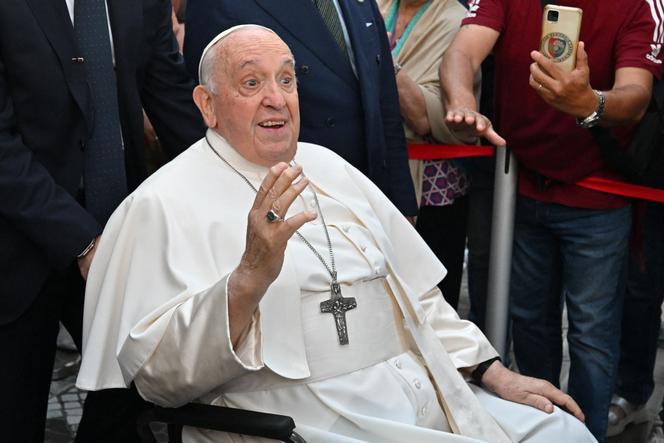Pope Francis Discloses Lingering Effects of Anesthesia and Shortness of Breath
Pope Francis revealed on Thursday that he continues to experience the lingering effects of anesthesia and is grappling with shortness of breath, as a result of the abdominal surgery he underwent two weeks ago.
During a gathering with charity workers for Eastern rite churches, the Pope opted not to deliver a prepared speech and instead distributed it among the attendees. He elucidated that his decision was influenced by his ongoing recovery process.
Citing his current condition, Pope Francis conveyed to those present that he remains under the influence of anesthesia, which has impacted his physical well-being. As reported by Vatican News, he disclosed, “I’m still feeling the effects of anesthesia, and my breathing is not optimal.”
The Pope’s candid acknowledgment sheds light on the challenges he is facing as he recuperates from the abdominal surgery. Although specific details regarding the procedure have not been disclosed, it is evident that the impact of anesthesia has been more prolonged than anticipated, affecting his breathing patterns and overall stamina.
The use of anesthesia during surgical procedures is a standard practice to ensure patients remain unconscious and pain-free throughout the operation. However, the recovery process can vary from person to person, and some individuals may experience side effects, including fatigue, grogginess, and respiratory difficulties.

Given Pope Francis’s significant responsibilities as the head of the Catholic Church, it is crucial for him to prioritize his health and well-being during this critical phase of recovery. The decision to distribute the prepared speech instead of delivering it personally demonstrates his commitment to conserving his energy and allowing himself the necessary time to heal fully.
The Pope’s transparency regarding his health serves as a reminder of the vulnerability and humanity that underlie even the most esteemed positions. It also highlights the importance of open dialogue and understanding when it comes to addressing health-related concerns, irrespective of one’s stature or influence.
The Vatican medical team, renowned for their expertise, continues to closely monitor Pope Francis’s recovery progress, ensuring he receives the best possible care and support. With time and proper medical attention, it is expected that the lingering effects of anesthesia will gradually subside, allowing the Pope to regain his strength and vitality.
The global Catholic community, along with people of various faiths worldwide, expresses their well-wishes and prayers for Pope Francis’s swift recovery. His leadership, compassion, and dedication to humanitarian causes have touched the lives of countless individuals, and it is essential for him to prioritize his health as he continues to inspire and guide people around the world.
In conclusion, Pope Francis’s disclosure regarding the persisting effects of anesthesia and his experience of shortness of breath following abdominal surgery highlights the significance of his ongoing recovery. This transparent revelation underscores the need for patience, understanding, and support as he navigates this challenging period. May the Pope’s health be restored fully, allowing him to resume his impactful work and continue to be a source of inspiration for millions.

